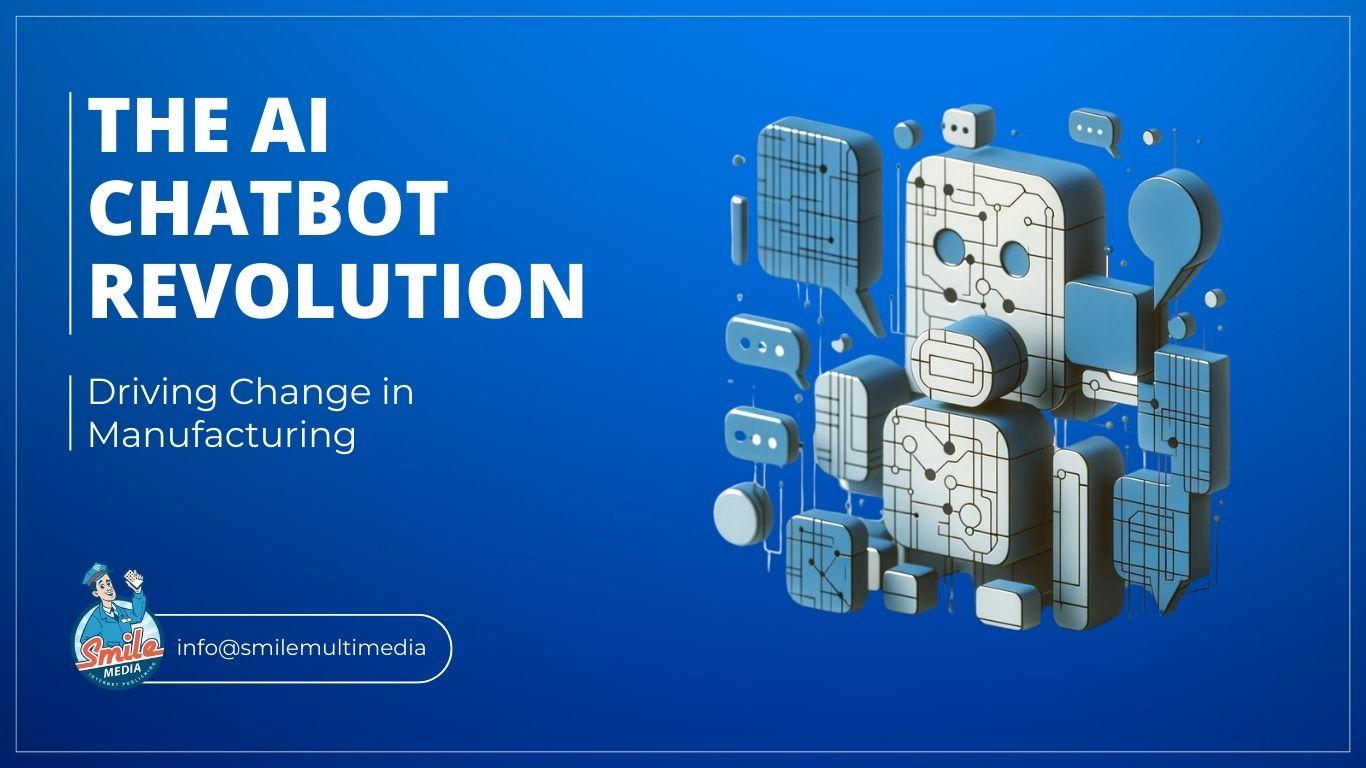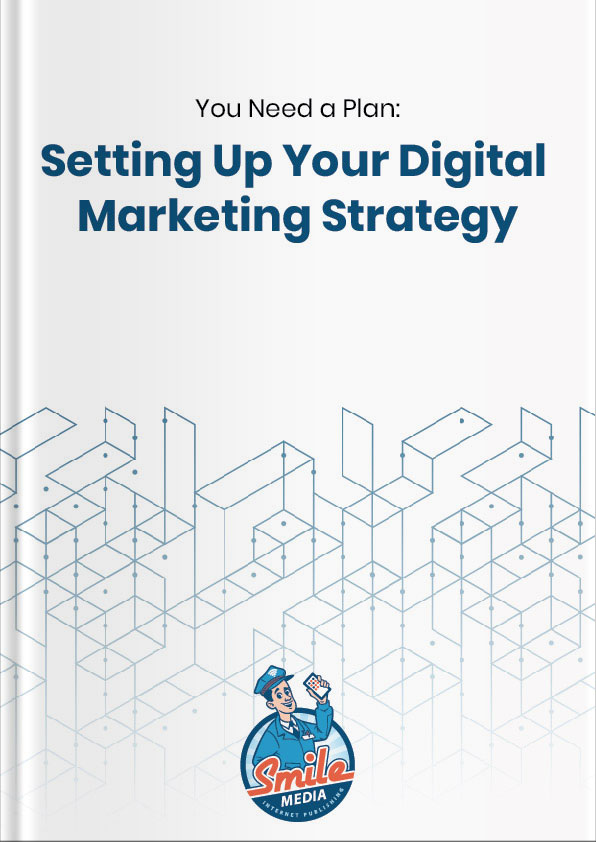Welcome to the future of manufacturing! In an industry driven by efficiency and customer satisfaction, AI-powered chatbots are paving the way for streamlined operations and enhanced customer interactions. These innovative tools are changing the game for manufacturers by providing real-time support, automating processes, and improving overall efficiency.
By integrating chatbots into manufacturing processes, companies can significantly reduce response times, improve customer service, and enhance overall productivity. Whether it's addressing customer inquiries, providing technical support, or optimizing supply chain management, AI-powered chatbots are revolutionizing the way manufacturers operate.
Understanding AI-Powered Chatbots in Manufacturing
Talking robots that help in manufacturing? Yes, you read that right! AI-powered chatbots are revolutionizing the way manufacturing industries operate.
Definition and functionality of manufacturing chatbots
Manufacturing chatbots are virtual assistants that use artificial intelligence, machine learning, and natural language processing to interact with users conversationally. They can perform a variety of tasks such as answering queries, providing troubleshooting assistance, and even scheduling maintenance tasks.
The technological backbone: How AI, machine learning, and natural language processing empower chatbots
AI-powered chatbots in manufacturing rely on advanced technologies like artificial intelligence, machine learning, and natural language processing to understand and respond to user inquiries accurately. These technologies enable chatbots to continuously learn and improve their responses, making them more efficient and effective over time.
The Role of AI Chatbots in Manufacturing: A Game Changer
Talking about game-changing technology in the manufacturing industry, AI-powered chatbots are at the forefront of revolutionizing the way things get done. These virtual assistants are not just another fancy gadget, they are here to stay and make a significant impact on the manufacturing processes.
• Streamlining communication between machines, systems, and human operators: AI chatbots act as intermediaries that facilitate seamless communication between different components of a manufacturing setup. They can relay information, instructions, and feedback in real-time, ensuring smooth operations.
• Enhancing operational efficiency and reducing downtime: By automating repetitive tasks and troubleshooting common issues, AI chatbots help optimize production processes and minimize downtime. This leads to increased productivity and better resource utilization.
• Facilitating real-time data analytics and decision-making: With access to vast amounts of data, AI chatbots can generate actionable insights that enable quick decision-making. They can analyze trends, identify patterns, and predict potential bottlenecks, helping manufacturers stay ahead of the curve.
Types of Chatbots in Manufacturing
When it comes to chatbots in manufacturing, two main types are commonly used: Rule-Based chatbots and AI-powered chatbots. Here's a closer look at each:
Rule-Based vs. AI-Powered: Understanding the differences
• Rule-Based Chatbots: Rule-based chatbots follow a set of predefined rules and responses to interact with users. They are limited in their ability to learn and adapt to new situations.
• AI-Powered Chatbots: AI-powered chatbots, on the other hand, use artificial intelligence algorithms to understand and respond to user queries. They can learn from past interactions and improve their responses over time.
For manufacturing companies looking for more advanced and flexible chatbot solutions, AI-powered chatbots are the preferred choice.
Application-specific chatbots: Tailored solutions for manufacturing needs
• Application-specific chatbots are designed to address specific needs and challenges within the manufacturing industry. These chatbots are customized to provide solutions for tasks such as inventory management, production scheduling, and quality control.
• By using application-specific chatbots, manufacturing companies can streamline their operations and improve efficiency in these key areas.
Benefits of AI-Powered Chatbots in Improving Efficiency
AI-powered chatbots play a crucial role in streamlining operations and improving efficiency in the manufacturing industry. Here are some key benefits:
Practical Applications of AI Chatbots in Manufacturing
• Data-Driven Decision Making: Leveraging real-time analytics to inform strategic decisions, enhancing efficiency and productivity.
• Operational Optimization: Streamlining processes across the board, from production to customer service, ensuring smoother operations.
• Enhanced Efficiency: Automating routine tasks, reducing manual labor, and minimizing errors, leading to increased operational speed and accuracy.
• Improved Customer Interaction: Offering 24/7 customer support through instant, automated responses, improving customer satisfaction and engagement.
• Production Support: Offering real-time production insights and recommendations for workflow improvements, enhancing productivity and efficiency.
• Quality Control: Monitoring production processes in real-time to identify and address quality issues promptly, ensuring product consistency.
Inventory and supply chain management
• Real-time Inventory Tracking: AI chatbots provide up-to-the-minute updates on inventory levels, helping businesses avoid overstocking or running out of critical materials.
• Supply Chain Optimization: By analyzing supply chain logistics, chatbots can identify bottlenecks and suggest improvements, ensuring a smoother flow of materials and reduced lead times.
• Demand Forecasting: Leveraging historical data, chatbots can predict future inventory needs, enabling proactive restocking and inventory management.
Automating customer support and order processing
• 24/7 Customer Service: Chatbots offer round-the-clock customer support, answering queries, and providing assistance without the need for human intervention, leading to higher customer satisfaction.
• Efficient Order Handling: From taking orders to processing payments, chatbots can manage the entire order cycle, reducing human error and increasing processing speed.
• Personalized Customer Experiences: By accessing customer history and preferences, chatbots can tailor interactions and recommendations, enhancing the shopping experience.
Maintenance assistance and predictive maintenance
• Proactive Issue Identification: AI chatbots can monitor equipment performance in real-time, identifying issues before they lead to breakdowns, thus minimizing downtime.
• Predictive Maintenance Scheduling: By predicting when equipment will need maintenance, chatbots help schedule services at the most opportune times, avoiding unnecessary disruptions.
• Remote Diagnostics: Chatbots can guide on-site personnel through diagnostic procedures, helping to quickly identify and resolve issues without waiting for expert intervention.
Production support and shop floor automation
• Real-time Production Insights: Chatbots provide instant access to production metrics and performance data, enabling managers to make informed decisions on the fly.
• Workflow Optimization: By analyzing production processes, chatbots can suggest optimizations for workflow, reducing bottlenecks and improving efficiency.
• Automated Task Allocation: Chatbots can manage task assignments based on current workloads and staff availability, ensuring that resources are used efficiently and effectively.
Overcoming Challenges: Integrating AI Chatbots into Manufacturing
Integrating AI chatbots into manufacturing processes can come with its fair share of challenges. However, with the right strategies and solutions in place, these obstacles can be overcome seamlessly.
Addressing integration complexity with existing systems
• Assess current systems: Before implementing AI chatbots, it is crucial to evaluate existing systems and processes to identify potential integration complexities.
• Collaborate with IT teams: Working closely with IT experts can help streamline the integration process and ensure compatibility with existing systems.
Ensuring data security and privacy
• Implement encryption: Utilize encryption technologies to safeguard sensitive data and protect against cyber threats.
• Regular audits: Conduct regular security audits to identify and address vulnerabilities in the system.
AI training and adaptation to industry-specific needs
• Customize algorithms: Tailor AI algorithms to meet the specific requirements and challenges of the manufacturing industry.
• Continuous learning: Implement a continuous learning process to enhance AI capabilities and adapt to evolving industry trends.
User acceptance and training for seamless adoption
• Provide comprehensive training: Offer training programs to educate employees on how to interact effectively with AI chatbots and maximize their benefits.
• Address concerns: Address any user concerns or resistance to change by highlighting the advantages of AI chatbots in improving efficiency and productivity.
The Future of AI-Powered Chatbots in Manufacturing
As technology continues to advance at a rapid pace, the future of AI-powered chatbots in manufacturing industries is looking brighter than ever. With the introduction of emerging technologies in AI and chatbots, the capabilities of these intelligent bots are expected to reach new heights.
Emerging Technologies in AI and Chatbots
One of the key areas of focus in the development of AI-powered chatbots for manufacturing industries is the integration of natural language processing (NLP) and machine learning algorithms. These technologies allow chatbots to understand and respond to human language with greater accuracy and efficiency, making them more effective in assisting workers on the factory floor.
Potential Advancements in Manufacturing Chatbot Capabilities
Manufacturing chatbots are expected to become even more versatile in the future, with the ability to handle a wider range of tasks and provide more personalized assistance to users. Advanced chatbots may be able to analyze complex data in real-time, predict maintenance requirements, and even autonomously make decisions to optimize manufacturing processes.
Predicting Future Trends in the Industry
Looking ahead, it is likely that AI-powered chatbots will play an increasingly critical role in manufacturing industries, helping companies streamline operations, reduce downtime, and improve overall efficiency. As the technology continues to evolve, we can expect to see even more sophisticated chatbots that are capable of revolutionizing the way we work in manufacturing.
Conclusion
By leveraging AI chatbots, manufacturing companies can significantly improve efficiency, streamline processes, and enhance overall productivity. With data-driven insights and analytics, companies can optimize their manufacturing processes and make informed decisions to drive success.
Integrating AI chatbots into existing systems and machinery allows for seamless operation and improves the overall workflow. The role of AI chatbots in manufacturing is truly a game changer, revolutionizing the industry and setting new standards for efficiency and innovation.
Manufacturing companies are encouraged to consider the integration of AI-powered chatbots into their processes to stay ahead of the competition and drive growth.
By embracing AI-powered chatbots, manufacturing companies can unlock new opportunities, enhance their operations, and ultimately thrive in the ever-evolving manufacturing landscape. It's time to embrace this technological advancement and reap the benefits it brings. Contact Smile MEDIA and learn how we can integrate AI-powered Chatbots into your manufacturing business.
FAQ
Q: What's the difference between AI-powered chatbots and rule-based chatbots in manufacturing?
A: Rule-based chatbots operate on predefined rules and responses, making them limited in their ability to handle complex or unexpected queries. AI-powered chatbots, on the other hand, use artificial intelligence to understand and respond to user queries dynamically, learning from past interactions to improve over time.
Q: What are the main challenges of integrating AI chatbots into manufacturing processes?
A: The main challenges include ensuring seamless integration with existing systems, maintaining data security and privacy, training AI chatbots to meet industry-specific needs, and encouraging user acceptance among employees.
Q: Can AI chatbots perform predictive maintenance in manufacturing?
A: Yes, AI chatbots can monitor equipment performance in real-time and use data analytics to predict when maintenance is needed. This proactive approach to maintenance helps prevent unexpected equipment failures and reduces downtime.
Q: Will AI chatbots replace human workers in the manufacturing industry?
A: No, AI chatbots are designed to complement human workers by taking over routine and repetitive tasks. This allows human employees to focus on more complex and strategic activities, enhancing the overall efficiency and productivity of the manufacturing process.








